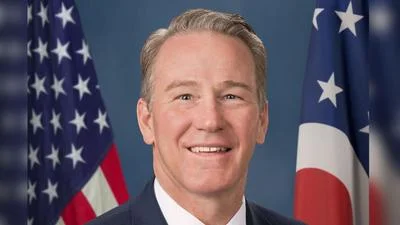Dean Rieck, Executive Director at Buckeye Firearms Association | LinkedIn
Dean Rieck, Executive Director at Buckeye Firearms Association | LinkedIn
The 10th Conference of States Parties to the Arms Trade Treaty (ATT) convened this week in Geneva, Switzerland. While the event marked the treaty's 10th anniversary since its entry into force, some saw it as an opportunity to reflect on President Trump's decision to withdraw the United States from its obligations under the treaty in 2019.
Proponents of the ATT argue that it aims to elevate global standards for firearm export and import without impacting national policies. Conversely, critics, including the National Rifle Association (NRA), contend that the treaty threatens U.S. sovereignty and Second Amendment rights. "That is why the NRA alone worked tirelessly with the Trump administration to remove John Kerry’s signature from the treaty and unbind the U.S. from its object and purpose," stated an NRA representative.
During last week's conference, Palestine delivered a critical intervention against Israel and the U.S., alleging that American arms exports contribute to human rights violations and gender-based violence in Gaza. They claimed these actions violate ATT provisions and called for international recourse.
The NRA views this incident as evidence that ATT could be used against nations regardless of their membership status. "One can only imagine the fight we would be in had the U.S. kept John Kerry’s signature on the document," noted an NRA spokesperson.
Additionally, conference attendees appointed a new head of the ATT Secretariat with strong ties to anti-firearms organizations, effective December 1. This decision faced no objections despite concerns about access to confidential national reports.
A significant portion of state parties reportedly share anti-firearm views or fail to meet reporting obligations under ATT provisions. Only 57% of ATT's 115 state parties submitted required annual reports last year.
This year's conference theme focused on expanding ATT's scope into national bodies like customs and law enforcement through interagency cooperation. Although there were attempts to incorporate such language into final documents, they were ultimately excluded due to opposition from other delegates.
The U.S., historically supportive of adopting ATT provisions, limited its participation to technical amendments during this conference. These efforts encountered resistance from Palestine and China.
The NRA hopes that recent hostilities will dissuade any future U.S. administration from reconsidering re-signing the treaty. "President Trump was right to remove us from the ATT’s object and purpose in 2019," emphasized an NRA official.
© 2024 National Rifle Association of America, Institute for Legislative Action
---






 Alerts Sign-up
Alerts Sign-up